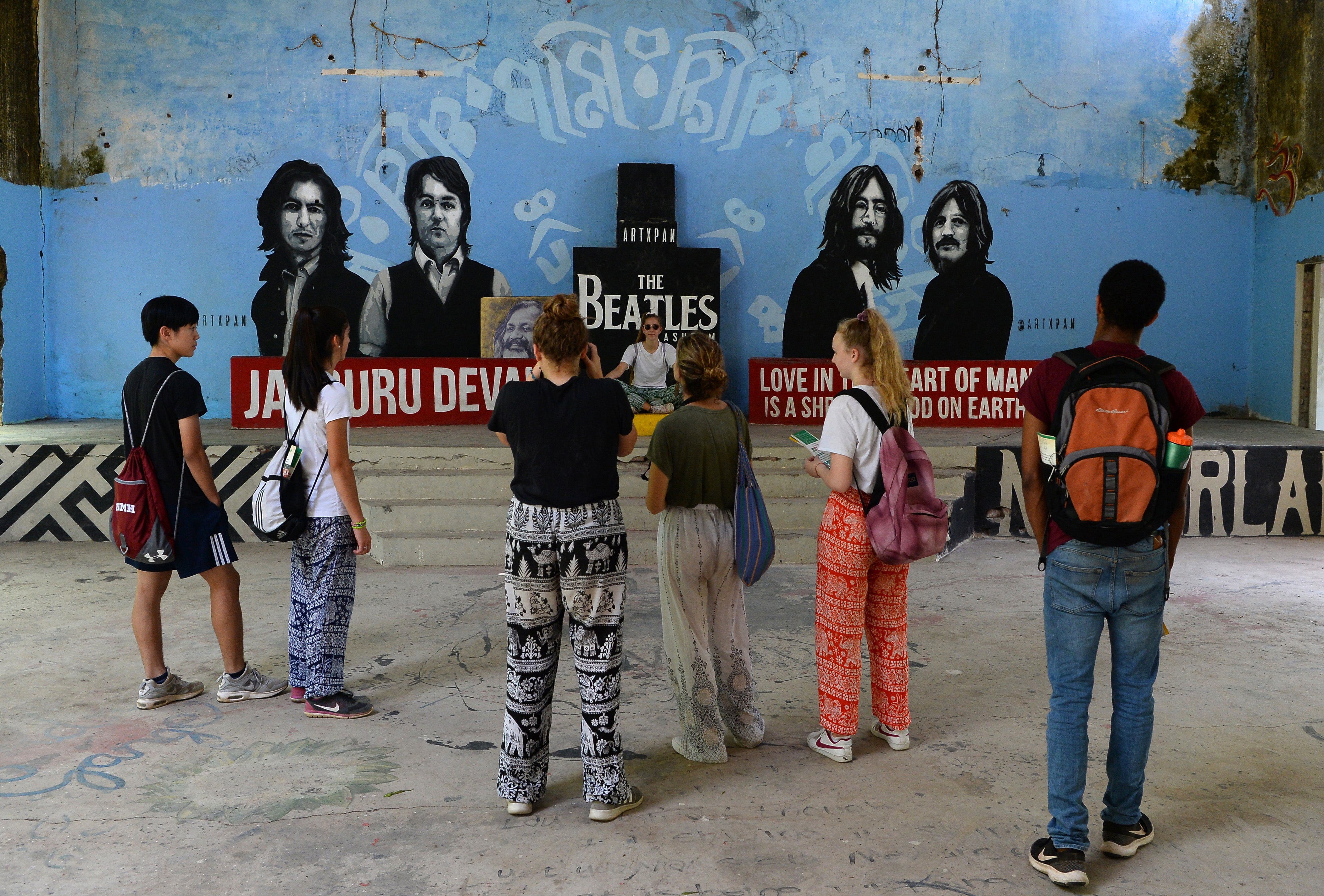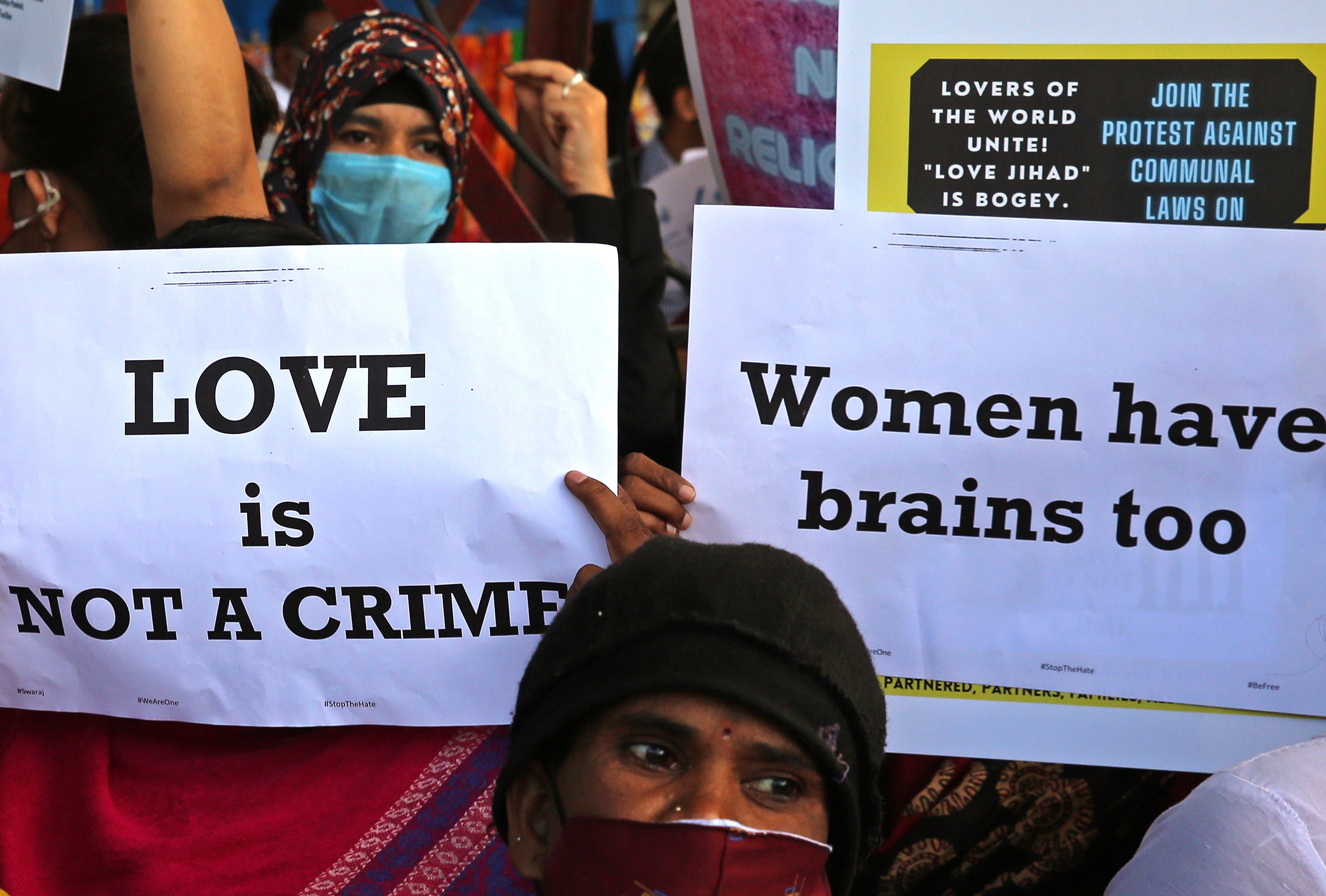‘Policing love’: Why couples could now be thrown in jail just for living together in India
In the first of a two-part series exploring an Indian state’s controversial new laws governing every aspect of people’s personal lives, Shweta Sharma meets cohabiting couples in Dehradun, Uttarakhand, who could now be fined or imprisoned for not publicly registering their relationship status


Latika and Ankit don’t want to get married. It is a personal choice for the couple, who have been dating for over three years and feel, like millions of other young people in love around the world, that the institution of marriage might change the dynamic of their relationship.
They prefer to live together as cohabiting partners, and have been doing so for the past two years – a situation that, bizarrely, could see them thrown in jail thanks to a new bill that became law this week and may eventually be rolled out across all of India.
It stipulates that unmarried couples wanting to live together must publicly register their relationship, and threatens fines and prison sentences of up to three months for those who fail to do so.
Here in the picturesque Himalayan foothills, where The Beatles came to seek spiritual enlightenment, the Uttarakhand state government has become the first in the country to draft and approve a controversial law governing many aspects of people’s private lives, including marriage, divorce, inheritance, property rights and – most controversially – so-called “live-in” relationships.
Since India’s independence, such matters have been governed by what are known as the “personal laws” of individual religions, reflecting the fact that different communities in this hugely diverse country abide by sometimes markedly different customs. It’s why Muslim men are able to have multiple wives, for instance, while the practice of polygamy is illegal for Hindus.
The Narendra Modi government has said for years that it wants to create a “uniform civil code” (UCC) for the nation – a move that critics fear will disproportionately penalise the customs of minority groups such as Muslims, and more closely align with existing practices among the Hindu community. Uttarakhand’s new UCC, which was approved by the president of India on Wednesday, is widely seen as a trial run before a similar law is introduced for the whole country.
Latika, 32, rejects the government’s position that the new law is designed to benefit women like her and prevent practices such as cohabitation from being abused. She says it is meant to harass those who make personal choices that are frowned upon by society.
“Here, live-in relationships are looked upon as taboo,” she tells The Independent. She describes how, even before these changes, finding accommodation in which to live together as an unwed couple was all but impossible. After multiple rejections from prospective landlords, Latika and Ankit were only successful when they started identifying themselves as distant cousins looking to share a flat.
Alvina, 22, is another young woman who spoke to The Independent in Dehradun, Uttarakhand’s state capital, about the very real impact the new law might have on her and her partner’s lives. She is two hours late for our interview, having been at home with her boyfriend Arav when his landlord unexpectedly dropped by; she felt compelled to hide in another room until he left in order to avoid unpleasant and intrusive questions about their relationship.
All the couples who spoke to The Independent for this story asked for their names to be changed to protect their identities, such is the sensitivity around the issue of live-in relationships in this part of India.
“This is how it is here. We cannot even meet in the privacy of our homes,” Alvina says. “Our lives are going to become even more miserable now [that the new laws have been passed].”

Under the requirements of the new law, cohabiting couples will now have to register themselves with a government official, who will conduct a summary inquiry into their relationship within 30 days and can summon them to supply additional information or evidence if necessary. They can reject their application on various grounds, or inform their parents if either partner is under 21.
In the event that a couple separates, they again have to approach the local authorities to register the termination of their relationship, and this record will be kept at a police station.
Alvina, a Muslim woman whose partner is a Hindu man also in his early twenties, fears that the new law will expose cohabiting couples to the threat of harassment by right-wing vigilante groups who object to inter-religious relationships.
“The society is very conservative, and not accepting of any kind of love relationships, and now we have been hit with this unreasonable and unnecessary law,” she tells The Independent.
She says that people in interfaith relationships – especially between Hindus and Muslims – are already subject to dangerous attacks from religious vigilante groups in the country. She refers to widely documented incidents in which such couples have been targeted by right-wing groups on a crusade to stop “love jihad” – a term that refers to an unfounded conspiracy theory that Muslim men lure Hindu women into relationships with the goal of converting them to Islam.

Dehradun – a city the then Prince of Wales, now King Charles III, visited in 2013 to observe organic farming in the foothills of the Himalayas – has seen greater development and a more progressive way of life than the more remote and smaller hill towns throughout the state. It has emerged as a hub for young and aspiring students seeking a better education and wishing to experience city life for the first time.
But the city is still lagging behind India’s other metropolises in providing a safe space for budding relationships. Unlike in big cities like Delhi or Mumbai, young couples are rarely seen holding hands here, as public displays of love still remain forbidden, and any relationship between a man and a woman other than marriage is generally seen as taboo.
“This law is interference in an individual’s privacy, and counterattacking our decision [to live together]. Our society is not so accepting, and landlords object to single women, imposing several conditions,” Alvina says.
“The new rule is meant to police the love affairs of people. I am scared [the authorities] will now come knocking at our door any day, as they have criminalised cohabiting and made it a punishable offence,” Latika adds.
Both Alvina and Latika say they are not sure what steps to take next, but that registering their relationships with the authorities is “not an option”.
“We feel it could bring a lot of problems, such as interference in our personal lives and moral policing,” says Latika. “It is not that we have bad intentions or are not serious about our relationship, but it is our decision, and we feel more comfortable in this arrangement rather than a marriage, where things are different.”

Criticism of the new law has come from other quarters, too – not just from the young couples who are most directly affected. Ajay Sharma, a man in his sixties, leads heritage walks around Mussoorie, a popular resort town sitting above Dehradun that is known as the Queen of the Hills. He says the UCC law is “absurd” and suggests that its real intent is to break up interfaith relationships.
“People often resort to live-in relations in this country when they are from different castes and religions, and when families are not agreeable to the union of inter-religious matches. It is the way to break these interfaith relationships and clear the ruling party’s long-standing agenda,” he tells The Independent.
Pranchal Nouni, who has come to the city from the small town of Chamoli, says the law will amount to nothing but intrusion into the personal lives of people and “surveillance by registration”.
“The people here are not able to inform their parents about their partners. How can they think that we can inform the authorities, who will only target us?”
Not everyone is opposed to the legislation, and there are those who agree with the government position that it will help to protect women from abusive relationships and patriarchal practices. One student in Karanpur, a bustling university district of Dehradun, suggests that the law would make both men and women more accountable for their actions when it comes to relationships.
“The concept of ‘use and throw’, where men use women for their physical needs, would end with this, and they would not be able to commit crimes,” says Golmei Chim, a native of the northeastern state of Manipur. He points to the fact that the new law requires the male partner to pay “maintenance” if a woman is “deserted”, in rules similar to those for a married couple.
The law builds on the precedent of the Domestic Violence Act 2005, which categorises couples who live together in a way that is “akin to marriage” as falling under the umbrella term of “domestic relationships”. This includes provisions for maintenance payments, but only in situations where a woman successfully files a complaint of domestic violence.
But Kamla Pant, a Uttarakhand-based women’s rights activist, tells The Independent that the law is just a “political gimmick” meant to target minorities and unnecessarily interfere in people’s personal lives.
“In this country, girls and boys are killed for the honour of the family if they are in interfaith and intercaste relationships. An illusion is being created that this law is very progressive and accepting of live-in relationships, but it is sheer interference into personal lives of people who, as mature individuals, want to live together,” Pant says.
It will mean that the man and woman will have to give their details to the authorities, revealing their caste and religion, and then police will be informed, she says. “And those matches that are not accepted under conventional societal norms would be targeted, and [this] would have serious consequences for people.
“With this, girls will end up being outcast by their families and a society which is not accepting of physical relationships before marriage, once they enter into legal databases. This is not at all in the favour of women in any way, and wants to control the personal lives of the people.”






Join our commenting forum
Join thought-provoking conversations, follow other Independent readers and see their replies
Comments